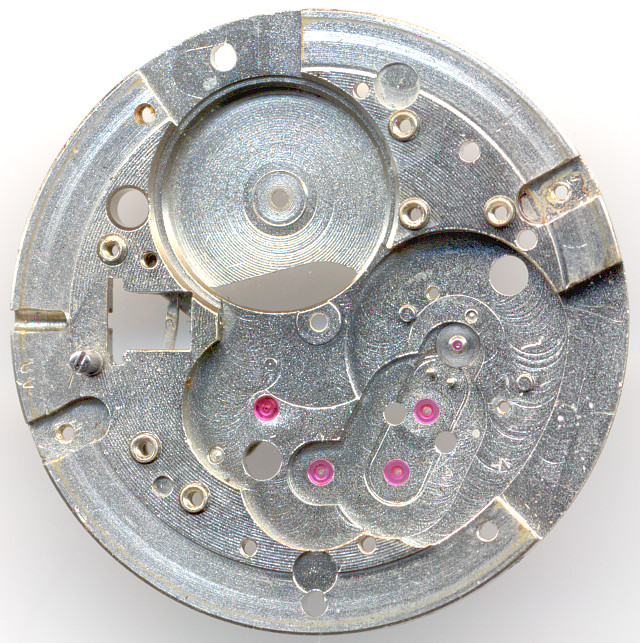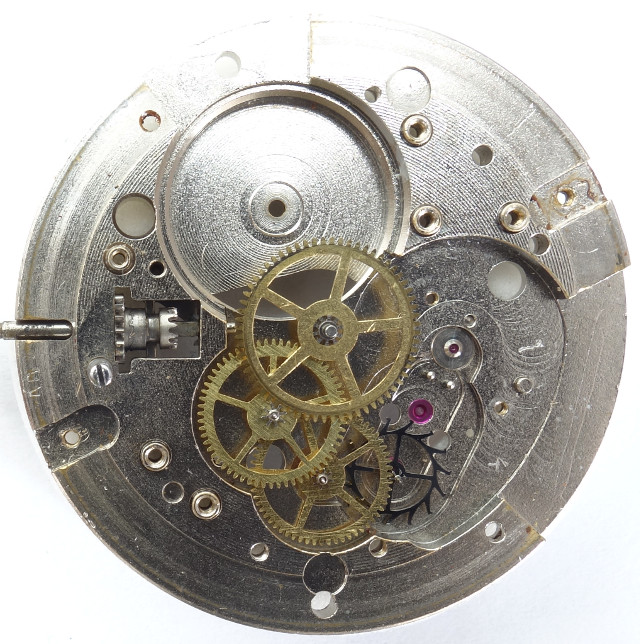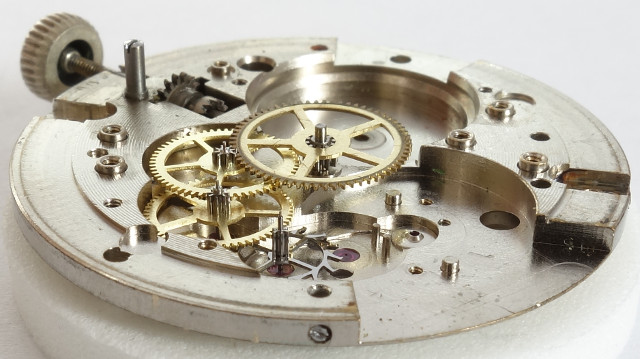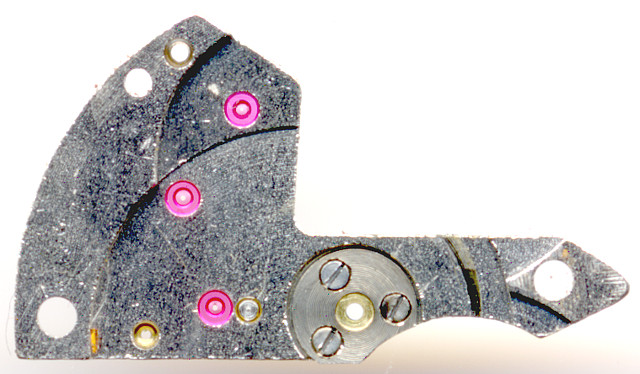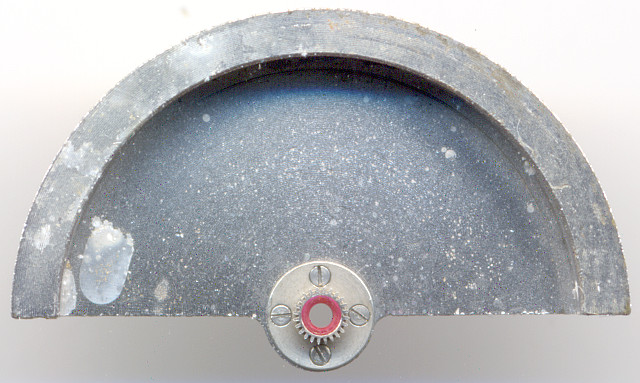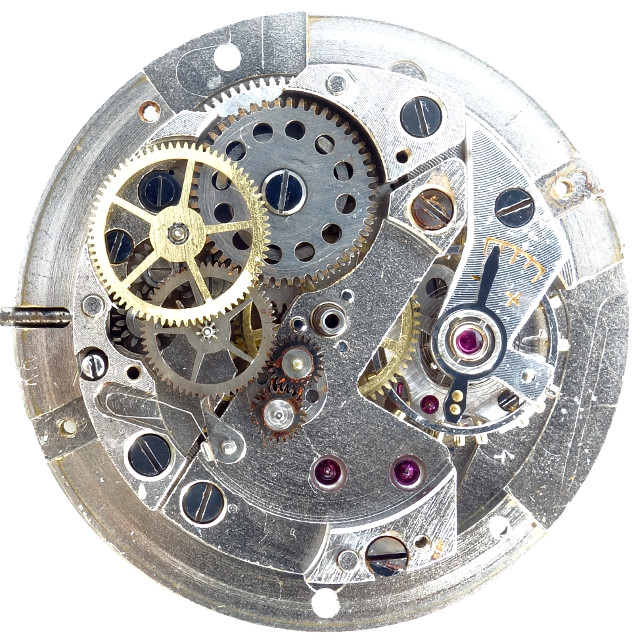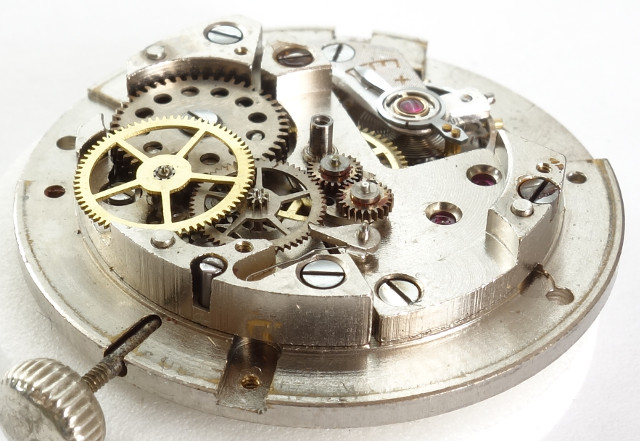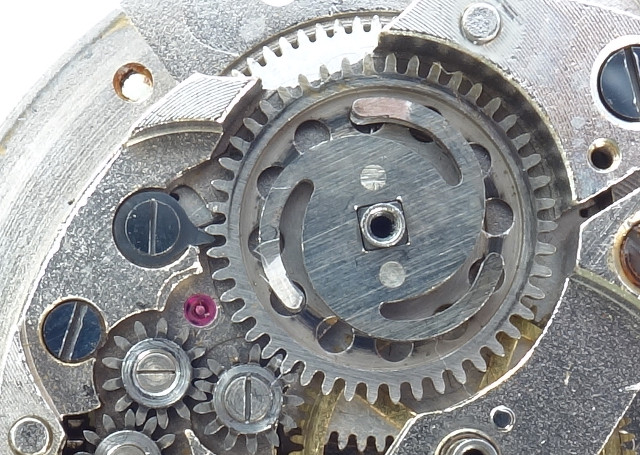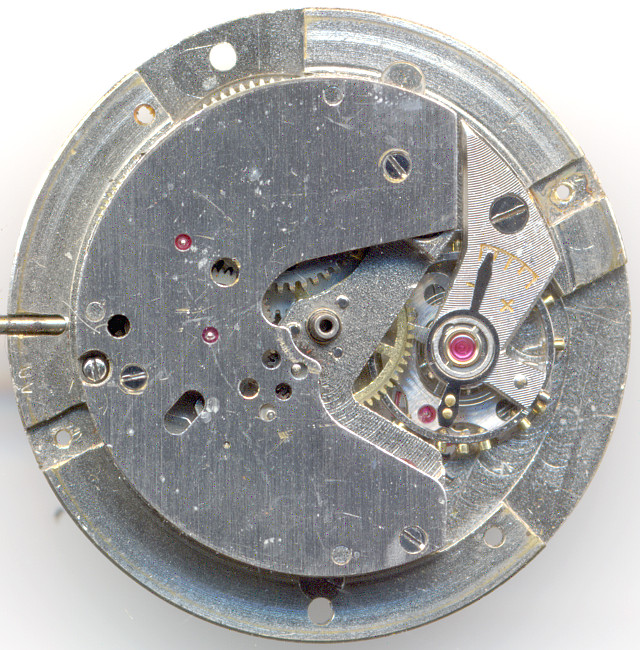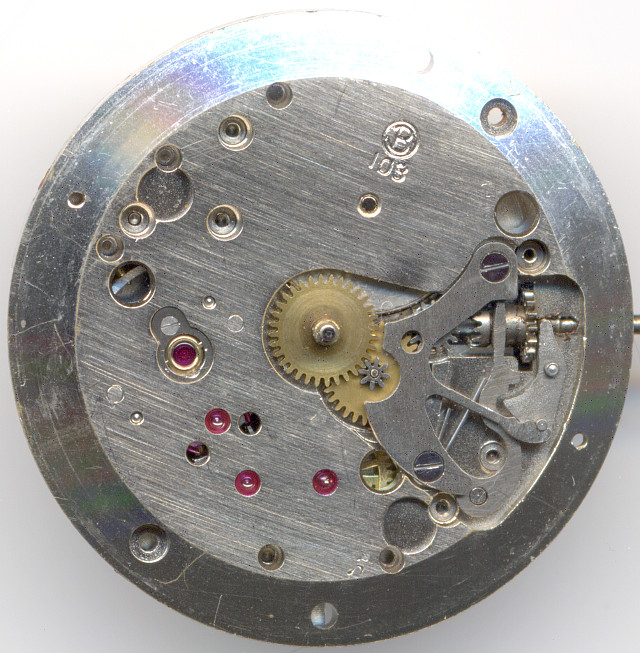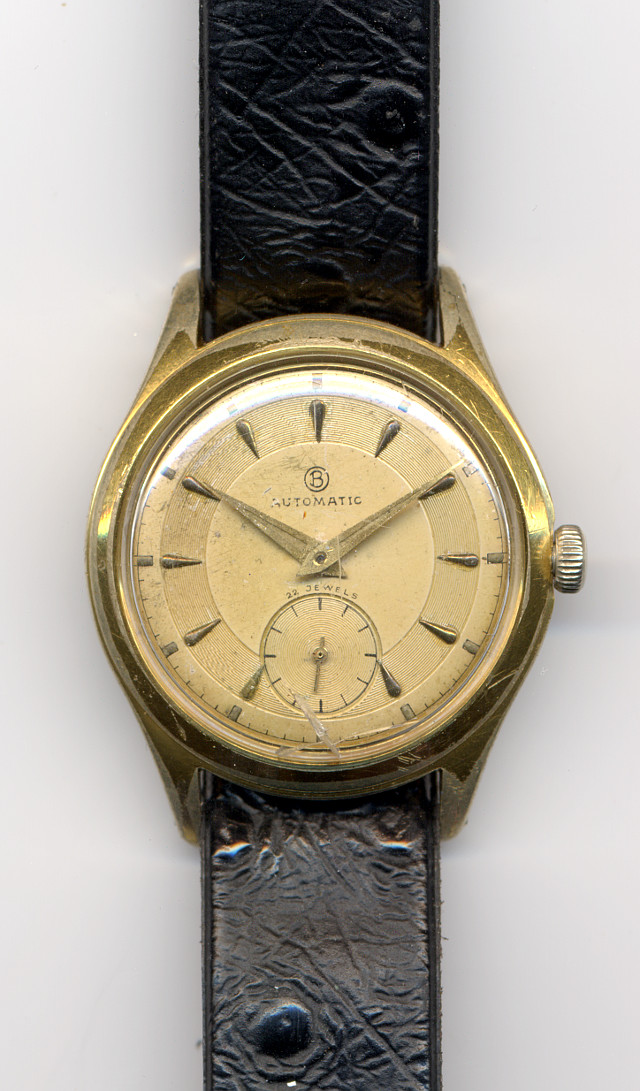Description
In the early 1950s, there was almost a race, who launched the first selfwinding movement in Germany, the narrow winner in 1951 was Bifora with their caliber 103 SA, in front of caliber 552 of DuRoWe.
While the 1951 version used a lever-changer (similar to the Felsa 415, the 1952 revision avoided this patented mechanism and used a rocking changer instead.
The base plate of this 13 ligne movement is similar to that of the Bifora 103, but got a larger diameter to offer more space of the heady metal rim of the oscillating weight.
Of couse, all important bearings, except those of minute wheel and mainspring barrel are equipped with rubies.
The gear train is contenporarily conventional with directly driven center minute wheel, third wheel, seconds wheel and escapement wheel.
The Bifora 103 SA (new) has got a screw balance, which is beared in two Super-Shock-Resist bearings and which beats with 18000 A/h. It regulates a pallet lever movement of swiss type and its beating rate can be adjusted with a long regulator arm.
On the inside of the gear train bridge, the bearing for the oscillating weight is fixed with three tiny screws. Otherwise, the bridge is the same as on caliber 103, but has got mountings and walls for the selfwinding mechanism.
The oscillating weight carries a ruby bearing in its center and an gear, which connects to the upper gear of the rocking bar changer.
At 7 o’clock, you see the rocking bar changer. It is a simple construction and consists of two connected gears. Depending on rotation of the oscillating weight, either the upper or the lower gear connects to the first reduction gear. This gear in blocked by a cluth to avoid turning counterclockwise.
The disadvantage of this rocking bar changer is its large dead angle of about 70 degrees. During that angle, the oscillating weight spins freely without winding function.
The selfwinding mechanism is connected with a double side commutator clutch with the ratchet wheel of the winding system. This clutch decouples the selfwinding system when the movement is wound manually.
As you can see, the commutator clutch is a very simple construction. It is the only part, which is connected to the square of the mainspring barrel. Both clutch gears instead are not connected with the mainspring barrel.
On the dial side, you see the yoke winding system and the shock protection of the movement. This movement was among the most expensive movements on the german market at that time and so of course pretty rare.
The caliber 103 SA was not produced very long, already in the next year, in 1953 it was superseded by caliber 111A, which in turn was also superseded just a year later.
Technical data
| Manufacturer: | Bifora |
| Caliber: | 103 SA neu |
| Size: | 13''' (measured: 28,9mm) |
| A/h: | 18000 |
| Number of jewels: | 22 |
| Escapement: | Pallet lever |
| Balance types: | Nickel screw balance |
| Shock protection(s): | Super Shock Resist |
| Balance bearing / direction hairspring: | Clockwise |
| Moveable stud: | no |
| Adjust mechanism: | Long regulator arm |
| Construction: |
|
| Construction type: | solid construction |
| Winding mechanism: | yoke winding system |
| Setting lever spring: | 1 hole |
| Features: |
|
| Production years: | 1952 - 1962? |
| References: | Flume: 1952 68 |
| Inventory number: | 17024 |

